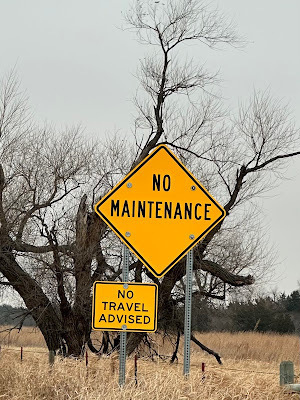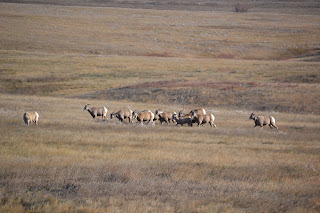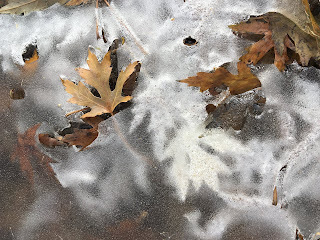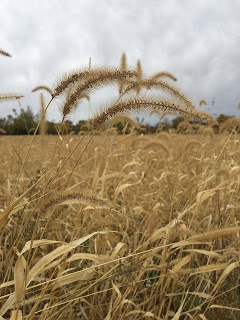environment
- They want to know why I continue to be a member of a church in an age when fewer and fewer people find themselves connected to traditional houses of worship or faith communities. (I have written about this in a few places, but you might like what I have written about prayer.)
- They wonder why I am still a professor in a small liberal arts college at a time when students seem disengaged, and when colleges are threatened by political headwinds, rising costs, apparent diminishing returns, and by our own decisions that weaken public opinion against us. (You can see a bit more of what I’ve written about the liberal arts here and here.
- And they wonder why I continue to work towards environmental sustainability in a place that doesn’t seem to value the environment, and where sustainability is viewed as a harmless hobby at best and a threat to business and freedom at worst. (My work focuses on the environmental humanities, and I’ve done a good deal of work in sustainability with my university, with my city, with our local zoo and aquarium, and internationally with organizations like IBM. You might also like this article I wrote about insects on Medium, but be forewarned that it is paywalled.)
- When it comes to faith, I often find others' stories more interesting than my own, and I’m glad to meet others who are seeking the way ahead with humble curiosity even if we use different words to talk about what we’re seeking and what we’re finding. So my calling is not to a building, or to a religion; rather, it feels like a consistent calling to love God and to love my neighbor as myself.
- When it comes to teaching, I have taught every age from pre-schoolers to older graduate students. I love it all. For now, I’m a tenured professor at the highest rank available to me. It took a lot of work to get here, and positions like mine are the envy of graduate students everywhere. I wouldn’t be surprised to see more and more schools eliminate tenure and reduce jobs like mine to some version of the gig economy (these things are already happening steadily around the world.) So if I were to leave this job, I’d be leaving something I probably would never find again. But I don’t feel the calling to comfortable tenure so strongly as I do feel the calling to meaningful teaching that helps others to flourish. So my calling seems always to tug me beyond my faculty office and my assigned classrooms.
- And when it comes to environmental sustainability, I often find myself scratching my head. Why wouldn’t we want to be not just good neighbors but also good ancestors? Why wouldn’t we want to pursue solutions that help people and the planet to thrive while also making sure we all flourish economically? I get it: so many of the solutions offered by environmentally-minded people threaten to cost us more in taxes, or they threaten particular practices or certain sectors of the economy. If someone came for my job or my hard-earned savings, I’d bristle as well. But it doesn’t have to be that way. We can make good use of the water we have AND we can make sure those who live downstream have clean water too. We can make good use of our soil without depleting it, and we can do it in a way that boosts profits. Etc. Here my callings all seem to come together: I feel called to help my neighbors — all of my neighbors — flourish, and to love them as myself. And to include as neighbors everything that lives, and everyone who might inherit this earth from me. I’d like my great-great-grandchildren whom I will likely never meet to look back on my life with gratitude.
- How can I begin and end each day so that each day has a sense of being meaningful?
- How can we begin and end each week so that toil does not become the pattern of every waking moment?
- What are the times of year that give themselves to fasting and mourning, feasting and celebrating, so that we can meaningfully reflect together on the real wounds, and lament together over what we’ve done; and so that we can rejoice together convivially, eating, drinking, and being merry in the wounds that we have worked together to heal.
- fasts with feasts,
- days of rest with days of labor,
- celebration with food,
- the progress of our days with the progress of the skies,
- remembrance with anticipation,
- rejoicing with mourning.
Why Are You Still Here?

Should you be here? (I like roads like this one.)
Like my previous post, this one begins with a question others ask me fairly often:
“Why are you still here?”
Thankfully, when I hear this question people generally aren’t asking me to leave. Rather, they’re asking why I stay. And they’re usually asking about one of three things:
I have answers for each of these, and they’re all important. My faith matters to me. So does my community, and so does the environment my community inhabits. I want my neighbors to thrive, and that means I want them to live in a place that fosters health for the whole person: physical, emotional, mental, spiritual, and economic. And my idea of “neighbor” is fairly expansive, and it includes all those whose lives are connected to my own, including the lives of other species. Jesus once pointed out that not even a sparrow can fall to the ground without God noticing it. If the sparrows matter to God, then I’d like them to matter to me.
In other words, for me, these three questions people ask me are all related to one another.
I think they’re all also related to my vocation, and to my sense of calling. In some way I feel called to and by God; I feel like teaching is my vocation; and I feel called to be a good steward of all Creation.
Those “callings” are different, but they all also feel like “deep calling unto deep.” I can’t explain them, and I don’t mean to say they’re others' callings as well. But they’re part of who I am, as far as I can tell.
One thing all those callings have in common is that they all seem to be growing:
So my best answer to this question “Why are you still here?” is this: for now, I feel called to be here.
Of course, like I said, my callings all seem to grow.
It may be that soon I’ll find a better way to answer this triple calling I feel, and if so, I hope I won’t hesitate to leave tenure and comfort and my favorite ideas when I find better ones.
Because I believe we are all in this life together, and, as some of my favorite authors have said, “all flourishing is mutual.”
Philosophy of Liturgy, and Climate Grief
I admire Greta Thunberg for her passion and commitment. I similarly admire a number of my students for their constant concern for the environment. This world we share, “this fragile earth, our island home,” as the BCP calls it, should not be mistreated.
And it is being mistreated, by all of us.
The more you know about that, the more you feel as Greta seems to feel, and as Aldo Leopold felt, like someone who “lives alone in a world full of wounds.” In his book, Round River, Leopold wrote that
“One of the penalties of an ecological education is that one lives alone in a world of wounds. Much of the damage inflicted on land is quite invisible to laymen. An ecologist must either harden his shell and make believe that the consequences of science are none of his business, or he must be the doctor who sees the marks of death in a community that believes itself well and does not want to be told otherwise. The government tells us we need flood control and comes to straighten the creek in our pasture. The engineer on the job tells us the creek is now able to carry off more flood water, but in the process we lost our old willows where the cows switched flies in the noon shade, and where the owl hooted on a winter night. We lost the little marshy spot where our fringed gentians bloomed. Some engineers are beginning to have a feeling in their bones that the meanderings of a creek not only improve the landscape but are a necessary part of the hydrologic functioning. The ecologist sees clearly that for similar reasons we can get along with less channel improvement on Round River.” --Aldo Leopold, Round River, Oxford University Press, New York, 1993. p.165When we hear of a single wound, most of us offer to help mend the wound. Most of the people you meet are, after all, people of good will, people who love their friends and families and who want the best for their community.
When we start to hear of more wounds, we react differently, wondering what we can do to protect ourselves from being wounded.
And when we find that there are wounds everywhere, it’s overwhelming. Some people react by plunging into grief. Seeing that the world is in peril, they wonder why no one else sees the peril, or cares about it. The problem is immense, the resources to cope with the problem are few, and lamentation quickly becomes fragile despair.
Others enter a state of denial, or of resignation. That’s just how it is, they say. It’s the price we pay for progress, and we can’t go back. There is nothing we can do but move on and hope for better solutions in the future. Eat, drink, and be merry, for tomorrow we might die.
Thing is, they’re both partly right.
The world is in peril. And the wounds are too many for any one of us to heal on our own today.
A liturgical calendar can help.
The Book of Ecclesiastes offers some helpful words: There is a time for everything under heaven. A time to heal, a time to rejoice, a time to mourn, a time to gather stones, and a time to cast stones away.
We need time dedicated to climate grief. This is like Lent, or Ramadan, or Yom Kippur, a time of fasting, of reflection on what we have done wrong, of repentance and turning away from our errors, of atonement. These are times for pausing to consider our lives and our connection with others. Lamentation of error is essential for learning to do better.
We also need time dedicated to hope. For every fast, there should be time for feasting. We need both the thin seedtime and the fat harvest. Just as we need to mourn our own ignorance and error, we need to celebrate the good things that are still worth seeking, striving for, and preserving.
Most people know the names of a few holidays. Few know the reasons for the holidays, or why they have lasted for so many centuries.
I’ll suggest that whatever tradition lies in your heritage or in the heritage of your community, take a little time to consider it. What rituals of fasting and feasting, of mourning and celebrating does it offer you? Religion is not without peril, of course, but it can also be a rich inheritance if you know what to do with it.
As you consider the liturgies you’ve inherited, remember that most ancient liturgical calendars follow the patterns of the heavens above. I don’t just mean that in some mystical sense (though there’s probably more there than we can easily grasp) but in the simplest sense: liturgical calendars follow days, weeks, months, and years.
It can be helpful to ask questions like these:
Commerce, Environmental Attention, and the Liturgical Calendar
 |
| Bighorn sheep in the Badlands National Park. The animals move together, responding to the land. |
By "liturgy" I mean the work we do together on a regular basis. The word "liturgy" comes from two Greek words that mean "the work of the people," and it usually refers to the rituals of worship in a religious congregation: it's the formula for when and how and where we stand, sit, kneel, pray, etc.
Most religions I can think of have liturgical calendars that describe the regular cycle of rituals in a year. If liturgy usually refers to what we do when we gather for a holiday or a day of worship, a liturgical calendar organizes the year so that we know when those days occur. It usually gives a sense of the flow of time, connecting days to one another with some purpose: liturgical calendars connect
 |
| Watching the seasons change: autumn leaves make imprints in the ice on my campus green. |
I used to think this was all silly, and a forced imposition on my freedom.
Lately I've been discovering that -- for me, at least -- the calendar's structure is a source of freedom from other calendars that don't help me to live well.
When I was younger I abandoned the liturgical calendar because I didn't want someone else telling me what days were holy. Why shouldn't they all be holy if I want them to be? And why should I fast just because someone else said we all should fast?
What I've come to see lately is that If we abandon the liturgical calendar with its times of feasting and fasting, the calendar doesn’t go away; it just becomes commercialized and turned into a calendar of constant consumption, constant labor. Feasting becomes purchasing; fasting becomes debt; and the two coincide with no time of rest between.
I experience the collapse of the calendar most where people like me have given it up and allowed others to co-opt it for commercial purposes. In simple terms, I experience it when I walk into a store in October and I hear Christmas music. All around me are ads telling me that my greatest obligation is to purchase things for Christmas, and to do so now.
This makes me want to shout: please spare me the Christmasy jingles, most of which drive me from your store. I like Christmas hymns, but the stress of being a cog in the machinery of holiday commerce has led me to appreciate the difference between Advent (a season of anticipation, of watching, and waiting) and Epiphany (a season of revealing, of celebration of birth, of discovery).
No one taught me this when I was young, but I've learned over the years that my tradition has different hymns for different times in the liturgical calendar. Now it feels odd to enter a pharmacy and to hear a hymn for the Nativity being played over the loudspeakers during Ordinary Time.
I used to think all that tradition to be nonsense. The older I get, the more I appreciate the thoughtful progress of a year, and the more I dislike the flattening of all days and all times into a yearlong, nonstop worship of commerce and toil.
We can't easily escape liturgical calendars, and I'm not sure we should. Even the birds of the air know when it is time to migrate, and they all have their liturgy of flight. The flowers know when to bloom, the salmon know when to spawn, the bears know when to look for the salmon. We humans used to know all these things, too.
Little by little we have lost connection to the liturgies that connect us to the land, the plants, the animals, the water, the wind, and the skies. When I ask my students what the phase of the moon is, it's rare that they know.
And I admit it is a wonderful thing not to need the moonlight. Running water, grocery stores, central heating, a solid roof, a functioning car, and many other modern conveniences are delightful. But they do come with costs; these good things are not free. They cost us money, which means we work more for them. And they have invisible costs, like the slow change of the quality of air in cities, the slow degradation of the planet's water, the slow loss of species around the world, the slow accumulation of things we throw away.
And then, when these slow processes pile up, we begin to notice them, and we begin to wonder: what have we done? We slowly gave up the liturgies of seedtime and harvest and replaced them with liturgical calendars in which all days are days of commerce and toil.
Which gives rise to new liturgies, urgent liturgies of anxiety. Look at what we have done, we say. With sackcloth and ashes we lament the fouling of our nest. As an environmental researcher, I see the fouling clearly and often, and I share that stress, that anxiety, that lamentation.
But if we replace the new liturgy of constant toil and waste with a newer one of constant lamentation over the toil and waste, we might wind up replacing one flattening of days with another.
 |
| Seedtime leads to harvest, and then seedtime again, with times of rest in between. |
I don't know the solution, and I don't intend to argue for returning to some halcyon past. Nor do I plan to argue for the imposition of my chosen calendar on others. But I do intend to reexamine the calendar I inherited, to dust it off and see what I missed when I put it aside. Sometimes old ideas are still good ones; some old seeds can still bear new fruit.
For now, what I propose is to mourn in some seasons, but also to rejoice in others. If there is mourning to do, it is also the case that there is still life to preserve. Each of these things--mourning and preserving, looking back at what is lost and looking ahead to what might flourish--calls for its own day. And each day calls for a calendar that can connect it to the other days in a way that keeps each day from dissolving into atomic time. Each day has some part of the whole of life. That part is worth seeing in its own day.
20,000: Two Stories Of Water Pollution In The Dakotas
The first was a story about an oil pipeline leak in which 20,000 barrels of crude oil contaminated over seven acres of farmland. The Argus reports that in major oil-producing states like North Dakota oil spills must be reported to the state, but state law does not mandate the release of this information to the public. In other words, the state is free to keep this news quiet. One has to assume that the state legislators who wrote that law thought it was in the public interest to keep news of toxic spills quiet. It's better for us not to know about such things, I guess.
Anyway, the Argus lets us know that some state officials think there's no cause for concern: "state regulators say no water sources were contaminated, no wildlife was hurt and no one was injured." Oh, good.
The second story is about the disposal of some 20,000 cattle that died in a surprisingly early and heavy snowstorm earlier this month. This is a devastating loss for ranchers across western South Dakota. It represents an enormous financial loss, and it also creates a very difficult cleanup problem. The best solution for disposal of all the carcasses so far has been to dig two large pits. The Argus reports that there are strict regulations concerning the depth and soil of the pits.
According to the Argus, the reason for the pits is to make sure the dead cattle don't contaminate streams.
Which makes me wonder why there is so little concern for the oil spill in North Dakota. Obviously there is an important difference between bacterial and viral infections entering streams, on the one hand, and oil entering streams on the other hand. But surely both represent serious health hazards?
We are left with a peculiar contrast: a few cattle on the ground - something that happens in nature all the time - are a serious threat to the water, while a million gallons of crude oil spread across seven acres of farmland (presumably some rain falls there and washes into streams?) is barely worth telling the public about.
*****
Update: Since a number of people have asked me just what happened to the cattle in South Dakota, I am posting this link that I found to be a helpful reply to some questions about the storm and the loss of the cattle.